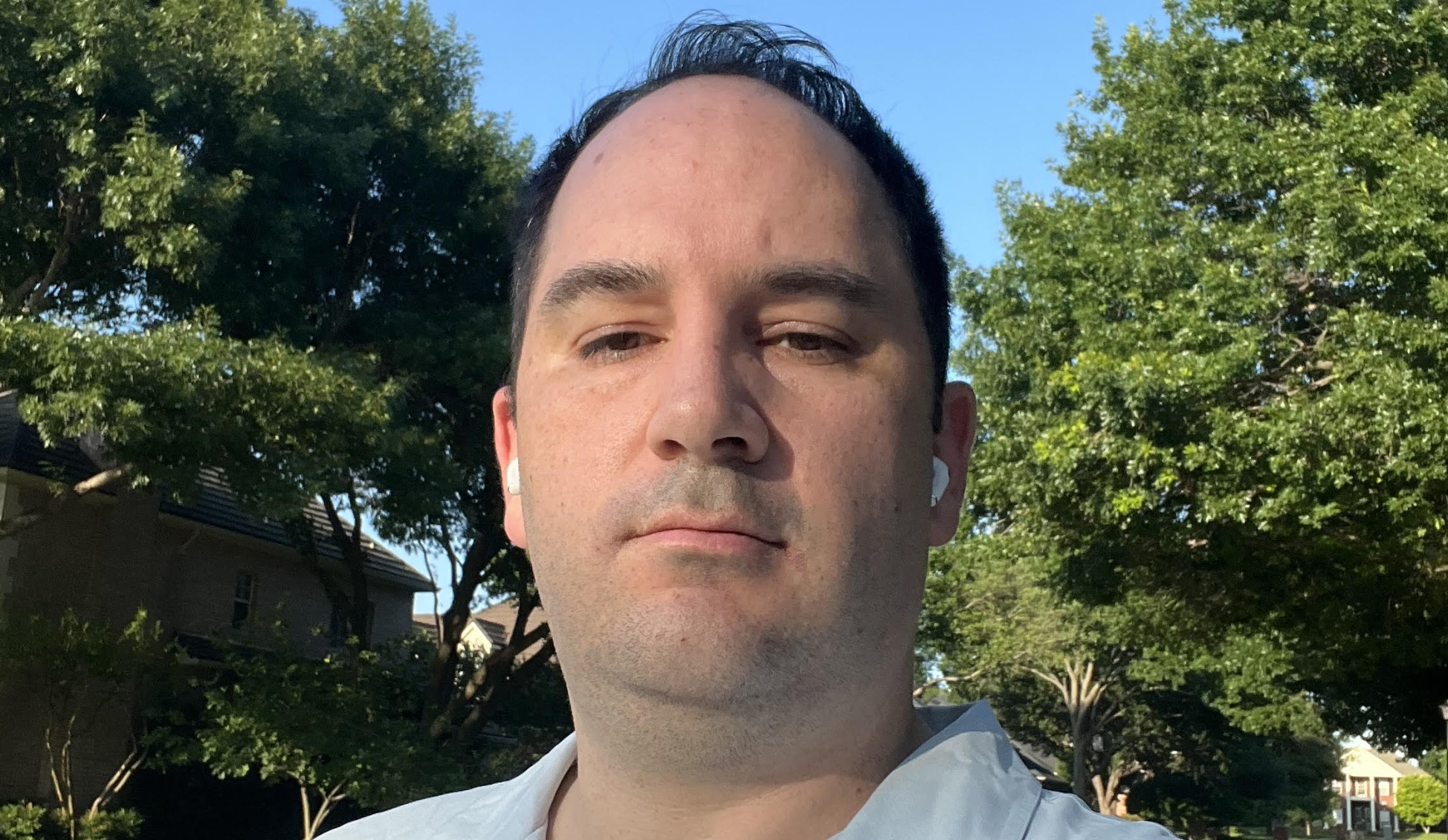10 bold moves red states can make to end the illegal immigration surge
Do we not already have enough criminals in this country? When will we finally reach the point where we say “no more” to repeat offenders, including drunk drivers, sex offenders, drug traffickers, and gangbangers from other countries? The time has come for states — especially those led by Republicans — to take a firm and unified stand. Holding a special session right before the election, as early voting begins, offers the perfect opportunity to bring this issue to the forefront. We could fill pages daily with stories about repeat violent criminal aliens committing horrific rapes, murders, and DUI homicides, taking the lives of Americans in their prime through entirely avoidable crimes. We are also beginning to see the effects of bringing in millions of migrants, particularly in small towns like Springfield, Ohio, Charleroi, Pennsylvania, and Sylacauga, Alabama. Time and again, we hear this is a federal issue and that states lack the power to combat or deter this invasion. Not so. It’s time for Republican governors and legislatures to step up and address this issue once and for all. States must stand firm and refuse to recognize any amnesty Joe Biden and Kamala Harris attempt to grant in the final months of their administration. With the November election approaching, every Republican governor should convene a special legislative session aimed at deterring illegal aliens from entering red states. Here are 10 strategies: Declare an invasion: The session should start by passing a resolution that acknowledges the state is facing an invasion and invokes powers under the Constitution’s compact clause. Article I, Section 10, Clause 3 allows states to engage in defensive actions if “actually invaded” or facing “imminent danger” that requires immediate response. After four years of inaction from the federal government, states can’t wait any longer. Criminal aliens, transnational gangs, fentanyl trafficking, human trafficking, and the strain on public services pose an undeniable danger. While states don’t need to wage war, they can use their authority over internal order, policing, and public health to restrict, deter, and, when possible, encourage illegal aliens to deport themselves voluntarily. Declare a public health emergency: Large numbers of illegal aliens are arriving from countries with diseases not common in the United States, including Haiti, according to the Centers for Disease Control and Prevention. We all remember the extent to which states exercised police powers over public health during the pandemic, shutting down churches, businesses, and even restricting breathing to prevent disease spread. States even imposed travel bans on residents of other states. If they could do that, they can certainly apply similar restrictions to foreign invaders who are gathering en masse under chaotic conditions and creating a public health threat. We’ve already seen outbreaks in migrant shelters. What happened to the public health concerns that overrode natural rights in 2020? Incarcerate or expel criminal aliens: Stories of illegal aliens with records of drunk driving, drug and weapons charges, and robbery committing additional serious crimes appear daily across every state. GOP governors should adopt a clear policy: The first crime an illegal alien commits in a state should be his last. In a letter to a GOP congressman, ICE revealed that its non-detained docket includes 7.6 million aliens, among them individuals with 662,566 total criminal convictions or charges. This group includes aliens convicted of more than 13,000 homicides, 15,811 sexual assaults (plus 9,461 convicted of other sex offenses), 851 kidnappings, nearly 3,400 weapon offenses, over 2,000 robberies, 56,533 dangerous drug convictions, 14,301 burglaries, and 62,231 assaults. Many of the most serious offenders are currently in state or local prisons, but others remain free on the streets. This is especially true for "low-level" offenders, such as roughly 130,000 traffic offenders, 70,000 drug offenders, 31,000 charged or convicted of larceny, 17,000 weapons offenders, and 17,500 burglars. The federal government has not removed these people, including 1.3 million who already have final removal orders. This is where states must step in. Each legislature should impose significant sentencing enhancements for those who commit any crime after entering the United States illegally. For aliens arrested for minor crimes that don’t require incarceration for justice, states should offer a diversion program. This program could provide a suspended sentence in exchange for self-repatriation. States could even cover the cost of a plane ticket and grant leniency, as long as the person doesn’t return to the state. This approach combines incentives and consequences to encourage self-repatriation without risking accusations of states actively engaging in deportation. Federal law implicitly supports the idea of self-removal during or outside a criminal tr


Do we not already have enough criminals in this country? When will we finally reach the point where we say “no more” to repeat offenders, including drunk drivers, sex offenders, drug traffickers, and gangbangers from other countries? The time has come for states — especially those led by Republicans — to take a firm and unified stand. Holding a special session right before the election, as early voting begins, offers the perfect opportunity to bring this issue to the forefront.
We could fill pages daily with stories about repeat violent criminal aliens committing horrific rapes, murders, and DUI homicides, taking the lives of Americans in their prime through entirely avoidable crimes. We are also beginning to see the effects of bringing in millions of migrants, particularly in small towns like Springfield, Ohio, Charleroi, Pennsylvania, and Sylacauga, Alabama. Time and again, we hear this is a federal issue and that states lack the power to combat or deter this invasion. Not so. It’s time for Republican governors and legislatures to step up and address this issue once and for all.
States must stand firm and refuse to recognize any amnesty Joe Biden and Kamala Harris attempt to grant in the final months of their administration.
With the November election approaching, every Republican governor should convene a special legislative session aimed at deterring illegal aliens from entering red states. Here are 10 strategies:
Declare an invasion: The session should start by passing a resolution that acknowledges the state is facing an invasion and invokes powers under the Constitution’s compact clause. Article I, Section 10, Clause 3 allows states to engage in defensive actions if “actually invaded” or facing “imminent danger” that requires immediate response. After four years of inaction from the federal government, states can’t wait any longer. Criminal aliens, transnational gangs, fentanyl trafficking, human trafficking, and the strain on public services pose an undeniable danger. While states don’t need to wage war, they can use their authority over internal order, policing, and public health to restrict, deter, and, when possible, encourage illegal aliens to deport themselves voluntarily.
Declare a public health emergency: Large numbers of illegal aliens are arriving from countries with diseases not common in the United States, including Haiti, according to the Centers for Disease Control and Prevention. We all remember the extent to which states exercised police powers over public health during the pandemic, shutting down churches, businesses, and even restricting breathing to prevent disease spread. States even imposed travel bans on residents of other states. If they could do that, they can certainly apply similar restrictions to foreign invaders who are gathering en masse under chaotic conditions and creating a public health threat. We’ve already seen outbreaks in migrant shelters. What happened to the public health concerns that overrode natural rights in 2020?
Incarcerate or expel criminal aliens: Stories of illegal aliens with records of drunk driving, drug and weapons charges, and robbery committing additional serious crimes appear daily across every state. GOP governors should adopt a clear policy: The first crime an illegal alien commits in a state should be his last.
In a letter to a GOP congressman, ICE revealed that its non-detained docket includes 7.6 million aliens, among them individuals with 662,566 total criminal convictions or charges. This group includes aliens convicted of more than 13,000 homicides, 15,811 sexual assaults (plus 9,461 convicted of other sex offenses), 851 kidnappings, nearly 3,400 weapon offenses, over 2,000 robberies, 56,533 dangerous drug convictions, 14,301 burglaries, and 62,231 assaults.
Many of the most serious offenders are currently in state or local prisons, but others remain free on the streets. This is especially true for "low-level" offenders, such as roughly 130,000 traffic offenders, 70,000 drug offenders, 31,000 charged or convicted of larceny, 17,000 weapons offenders, and 17,500 burglars. The federal government has not removed these people, including 1.3 million who already have final removal orders. This is where states must step in.
Each legislature should impose significant sentencing enhancements for those who commit any crime after entering the United States illegally. For aliens arrested for minor crimes that don’t require incarceration for justice, states should offer a diversion program. This program could provide a suspended sentence in exchange for self-repatriation. States could even cover the cost of a plane ticket and grant leniency, as long as the person doesn’t return to the state.
This approach combines incentives and consequences to encourage self-repatriation without risking accusations of states actively engaging in deportation. Federal law implicitly supports the idea of self-removal during or outside a criminal trial under either federal or state law.
Outlaw illegal presence in states: The above approach would target criminal aliens caught committing additional offenses. To deter all illegal aliens, states need to make illegal presence itself a crime. Oklahoma’s House Bill 4156, passed last session, aimed to do just that, though a federal judge has currently enjoined it. As a contingency, states should strengthen penalties and enforcement of related crimes involving illegal immigrants, such as trespassing, criminal vagrancy, identity theft, tax fraud, human trafficking, and harboring illegal aliens.
States should leverage enhanced sentences to encourage self-repatriation, avoiding judicial interference. State agencies should rigorously investigate identity theft by cross-referencing welfare benefits, driver’s licenses, and employment records for duplicates. Additionally, individuals arrested for offenses tied to transnational gangs like MS-13 or Tren de Aragua should face even harsher sentencing enhancements.
Beef up employment enforcement: If illegal aliens cannot get jobs, they will not come. That’s the bottom line. Right now, only six southeastern states and Arizona require universal E-Verify, and even these states often fail to enforce the law vigorously. Additionally, many employers use labor brokers, who officially hire these workers on behalf of local companies, to sidestep regulations. States must start prosecuting these labor brokers for human trafficking and evading state laws against employing illegal workers. Eliminating job opportunities will significantly reduce illegal immigration.
Reject Biden’s amnesty: Joe Biden continues to offer various forms of quasi-legal status to illegal aliens through unlawful parole programs or by expanding Temporary Protected Status. States must stand firm and refuse to recognize any amnesty Joe Biden and Kamala Harris attempt to grant in the final months of their administration. For state purposes, they should treat those individuals as illegal aliens.
Bar illegal aliens from public schools: It’s unfair for American children and parents to see their schools overwhelmed by illegal immigrants with different cultures and languages, who may pose security risks. This issue has even reached small, rural districts facing a surge in such enrollments. The right to K-12 education for illegal immigrants stems from the activist court ruling 42 years ago in Plyler v. Doe, which applied the equal protection clause to illegal aliens. The current Supreme Court might rule differently. At the very least, states should bar all prospective illegal immigrants or those who can't prove they arrived before 2021.
Or states could require a state-issued photo ID (rather than just a utility bill) to prove residency in a school district, applying the same standard to all residents, similar to voter ID requirements in many red states. Since most red states, except Utah, don’t issue photo IDs to illegal immigrants, those individuals would be ineligible to register for school under a residency verification law applied equally to everyone.
States should also require disclosure of immigration status during interactions like motor vehicle registrations, business license applications, welfare benefits, financial transactions, and arrests. State agencies should maintain a database of this information, including names, addresses, and Social Security numbers, for informational purposes. Florida has already implemented such a policy in hospitals and has reported a decline in illegal immigrants using those services. States could share this information with ICE, enabling federal action if a future administration takes a tougher stance on immigration.
Use zoning laws to limit town transformations: Small towns like Springfield, Ohio, Charleroi, Pennsylvania, Colony Ridge, Texas, and Sylacauga, Alabama, have faced rapid changes due to an influx of immigrants. While some claim that small towns have no power to stop this, a reporter on my podcast noted that Charleroi’s transformation stemmed from local business interests buying homes on Main Street and converting them into de facto “labor barracks.”
Local governments can use zoning laws to ban multi-unit dwellings and other living arrangements that attract illegal immigration. Although localities can’t make immigration law, they can use housing, transportation, and criminal vagrancy ordinances to discourage settlement in their areas.
End the 'unaccompanied minor' scam: Hundreds of thousands of volatile and violent teens enter our communities under humanitarian statutes, aided by sponsors who often lack legal status themselves. States should require sponsors of unaccompanied alien children to register with state child welfare departments, which must verify any claimed family relationship. This step would deter bad actors from perpetuating child trafficking and immigration status manipulation.
Revoke licenses of nonprofits aiding illegal immigration: A Florida Grand Jury found that several federally funded NGOs provide illegal immigrants with cash cards, cell phones, and even “safari-style guide maps,” aiding the invasion. States should criminalize activities that facilitate illegal immigration, similar to the unenforced federal law that makes it illegal to encourage or induce unlawful entry into the United States. States should also revoke business licenses and state recognition of NGOs that violate these laws.
Republicans at the national level have given up key leverage points in addressing this issue. States where Republicans control the executive and legislative branches need to act now.
Originally Published at Daily Wire, World Net Daily, or The Blaze
What's Your Reaction?
















![‘[Bleeping] insanity’: Watch Joe Rogan unload on Biden, Zelensky, and Deep State as fears of World War lll grow](https://www.wnd.com/wp-content/uploads/2024/11/joe-rogan-20241122-jpg.jpg)















































































